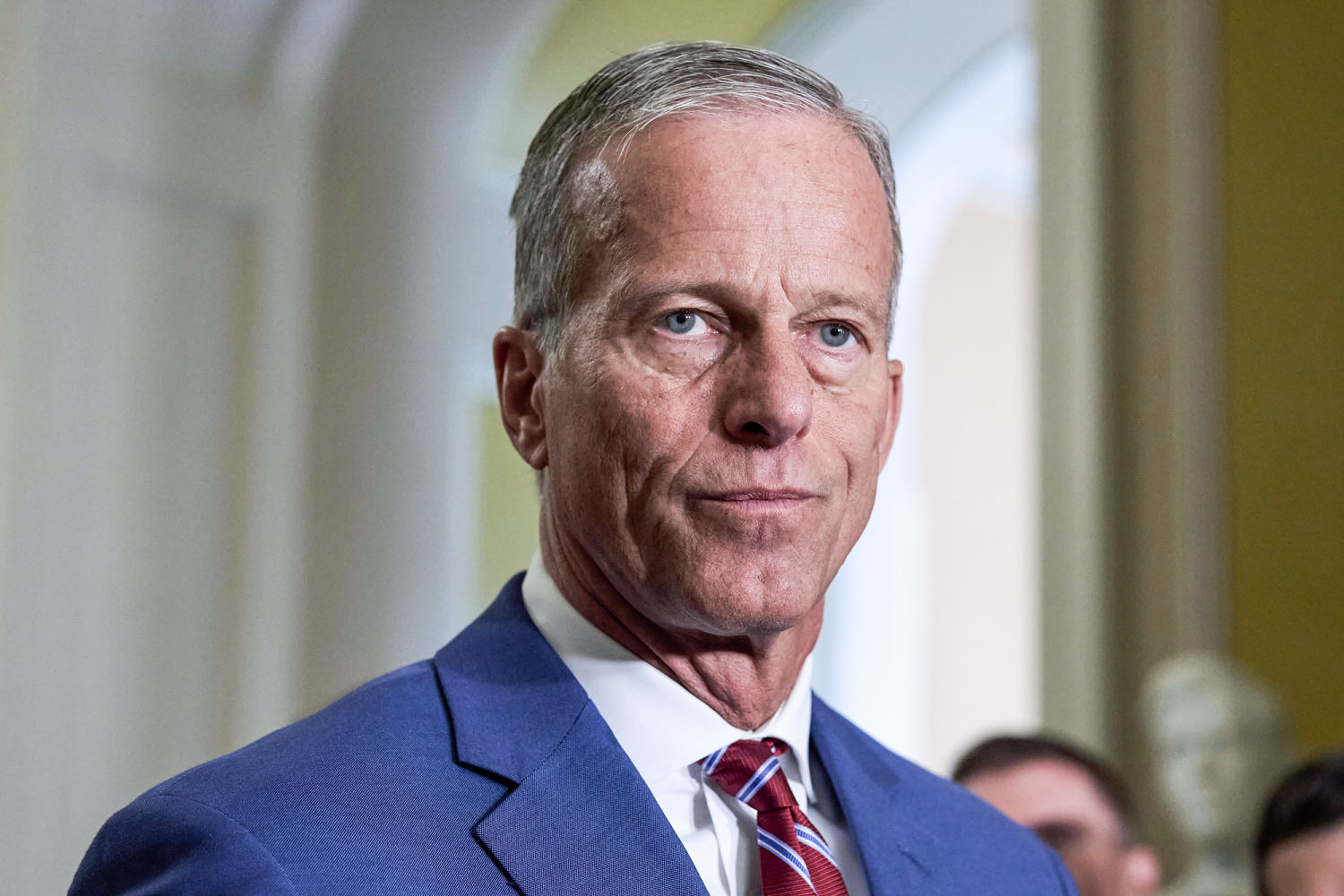
WASHINGTON — The Republican-led Senate Republicans voted Thursday morning to pass a package of spending cuts requested by President Donald Trump, sending it to the House.
The rescissions package cancels previously approved funding totaling $9 billion for foreign aid and the Corporation for Public Broadcasting, which funds NPR and PBS. Republicans passed it through a rarely used process to evade the 60-vote threshold and modify a bipartisan spending deal on party lines.
The vote of 51-48 followed a 13-hour series of votes on amendments, with two Republicans joining Democrats in opposition to the final bill: Sens. Susan Collins of Maine and Lisa Murkowski of Alaska.
Senate Democrats unanimously voted to reject the package. However, Tina Smith (D-MN) missed all amendment votes as well as final passage while she spent the night in hospital “out of an abundance of caution” after not feeling well, her office said.
The measure now goes back to the House, where it will need to be passed again before Trump can sign it into law. Senators amend the measure, which the House passed 214-212 last month, to remove $400 million in cuts to PEPFAR, the foreign aid program to combat HIV/AIDS.
The bill must be signed into law by midnight Friday for the proposed cuts to stand.
“I think $9 billion is a very small amount of money — as I mentioned, one-tenth of 1% of all federal spending,” Senate Majority Leader John Thune, R-S.D., said Wednesday evening on Fox News. “But we’ve got to look at all aspects of the federal budget and figure out where we can root out waste, fraud, and abuse, to put this country on a more sustainable fiscal path. We just can’t sustain where we are.”
Mitch McConnell (R-KY) voted against the bill in its procedural stage but voted Thursday morning to send the bill back to the House.
McConnell, who spent a record 18 years as Senate GOP leader before stepping aside in January, complained that the White House has not provided details about how they will implement the cuts.
“I want to make it clear: I don’t have any problem with reducing spending. We’re talking about not knowing,” McConnell told reporters. “They would like a blank check, is what they would like. And I don’t think that’s appropriate. I think they ought to make the case.”
Hours before the vote, Murkowski referred to an earthquake and tsunami warning Wednesday for a large part of the Alaska coast to highlight the importance of public media in broadcasting emergency alerts.
“Some colleagues claim they are targeting ‘radical leftist organizations’ with these cuts, but in Alaska, these are simply organizations dedicated to their communities,” Murkowski wrote on X. “Their response to today’s earthquake is a perfect example of the incredible public service these stations provide. They deliver local news, weather updates, and, yes, emergency alerts that save human lives.”
Other Republicans said they were leery about the measure, but set aside their concerns and voted for it anyway.
“I suspect we’re going to find out there are some things that we’re going to regret,” Sen. Thom Tillis, R-N.C., said Wednesday on the floor. “Some second and third order effects. And I suspect that when we do, we’ll have to come back and fix it.”
Tillis later told NBC News he was “trying to have a positive view about how this rescission is going to be implemented.”
“It’s not near as prescriptive as I would like for it to be,” he said. “But if they misstep, it’ll definitely influence my posture for future rescissions.”
Sen. Roger Wicker, R-Miss., the chair of the Armed Services Committee, said he’s backing the measure “with reservation.”
He said it “troubles” him that lawmakers are being so deferential to the executive branch: “It concerns me — as perhaps approaching a disregard for the constitutional responsibilities of the legislative branch under Article I.”
“Congress has the power of the purse. The president has the power to enforce. In this situation, there’s a specific amount stated that will be rescinded,” Wicker said on the Senate floor. “But this Congress will not be allowed to choose those specific cuts. That will be done by somebody in the Office of Management and Budget in the White House. And in this situation it will amount to the House and Senate basically saying: We concede that decision voluntarily to the executive branch.”
“So I have expressed concern about this,” said Wicker, who added that he intended to vote in favor of advancing the package anyway because of “a larger imperative at this moment” to address a “budget crisis.”
Wicker said Wednesday he stands by his speech, and the decision to support the rescissions measure despite his misgivings.
“I think my remarks speak for themselves,” he told NBC News.
